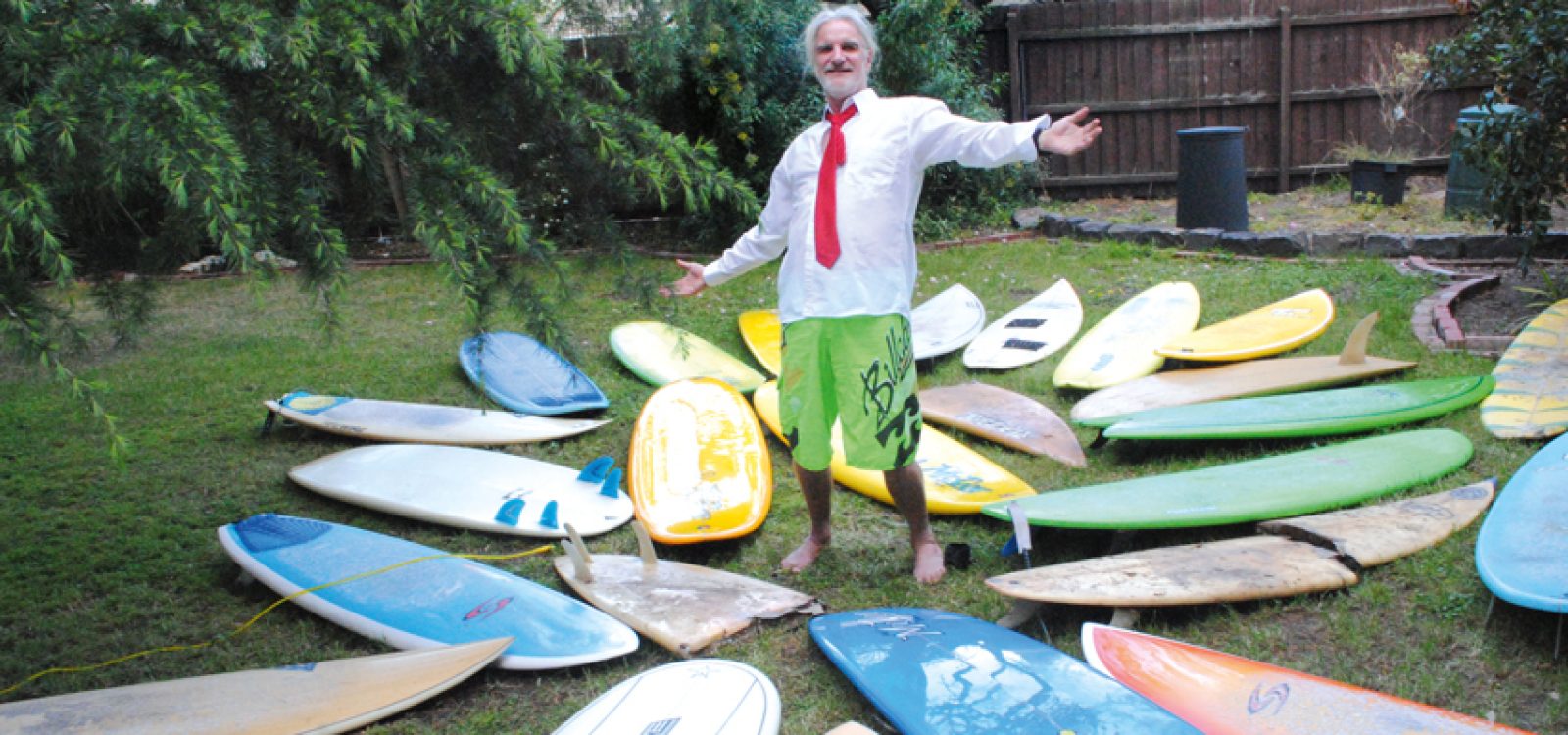
An Actuary Seeking Answers – Will Matthews
Will Matthews is an actuary living in Melbourne. He has worked in the life insurance industry and more recently as a consultant. But it is his work as an expert witness in 2002 that is the subject of this article.
The story concerns Will Matthews’ request for information from ASIC under freedom-of-information legislation– a request that was made more than a decade ago, and has yet to be fully answered. To understand the background to his request, we need to go back to 2001, when a company called Allstate Explorations NL was placed into administration.
INTRODUCTION
Allstate controlled the Beaconsfield goldmine in Tasmania, subsequently infamous for a disastrous collapse on 25 April 2006 and the miraculous rescue of two miners, Brant Webb and Todd Russell, after two weeks underground. Beaconsfield Mine operated from around 1877 to 1914, when it was first closed. It was re-opened in 1999, closed for some time after the 2006 collapse and operated until 2012. It produced approximately 1 million ounces of gold between 1877 and 1914, and a further 1 million ounces between 1999 and 2012. The mine was particularly profitable, reportedly producing 20.8 grams of gold per tonne of ore in 2004, compared to an average for most gold mines of around 3 grams per tonne. Subsequent indications are that the ore grades at some lower levels are even higher.
Allstate, which was a majority owner of the Beaconsfield Mine, was placed under administration in June 2001, under Michael Ryan and Anthony Woodings of Perth insolvency group, Taylor Woodings. In 2002 ASIC investigated the circumstances of Allstate and its 2001 administration, and as part of those investigations, ASIC retained Will Matthews to review the gold hedging contracts of Allstate and associated companies. ASIC subsequently found insufficient evidence to warrant further action. Following the abandonment of its investigations, ASIC has exempted the administrators from providing accounts for some of the periods since administration.
After ASIC ceased its investigations, Will Matthews and several Allstate shareholders sought details of the investigations:
- Following his investigations of the gold hedging and the ASIC exemption, Will Matthews sought details of the reasons for the abandonment of the investigation by lodging a Freedom of Information request for ASIC to provide the background documents. That request has continued in several forums for over a decade and has outlasted three ASIC chairmen. He has won an order from the Administrative Appeals Tribunal that disallows ASIC’s claim that most of the documents that he has sought are exempt from the FOI request, but so far he and the regulator have not reached agreement on details of the supply of those documents.
- In 2005, Allstate shareholder Jeffrey Knapp and other aggrieved shareholders sought to have a special purpose investigator examine the affairs of Allstate Explorations’ administrators. They sought the appointment of a special purpose administrator to review transactions that took place in September 2001 and March 2002, including the sale of $77 million worth of debt to Macquarie for $300,000. The action was financed by IMF Australia, a listed litigation funder. They were unsuccessful.
The irony of Allstate’s situation was that it owned 51.5 percent of the Beaconsfield Mine, and the junior partner, Beaconsfield Gold owned 48.5 per cent. Allstate had a smaller initial debt than Beaconsfield Gold and also received an ongoing management fee that Beaconsfield Gold did not receive as the junior partner. Yet it was Allstate that was placed in administration, and Beaconsfield Gold was allowed to continue operating.
To understand what Will Matthews has been seeking since 2003, we first need to examine the structure of the companies that owned and operated the Beaconsfield Mine.
DETAILS

Otter Gold controlled Allstate, which had majority ownership of the Beaconsfield Mine. Macquarie was financier to Otter Gold and arranged hedging contracts for Otter Gold and Allstate. Will Matthews has estimated that the result of these hedge contracts was that Allstate lost as much as $10 million at the same time as Otter Gold gained about $30 million. These hedge contracts were bank authorised and required to insure against loan exposures, with the same management arranging both sets of hedges – Will Matthews said that these arrangements were ‘at best, nonsensical’.
Beaconsfield Gold was placed into receivership in 2001 when the mine struck production and cash flow problems. It was relisted subsequently following arrangements with its banks.
Allstate was placed under administration in June 2001. Creditors voted to accept an offer from Macquarie – the only secured creditor, with a debt of $21 million – to purchase $77 million worth of Allstate’s debt for $300,000 – on 19 March 2002. Several shareholders subsequently claimed that the information provided to them prior to the March meeting was insufficient for them to make an informed decision. Specific forecasts of gold production were not given. But according to Mark Trumbull, executive director of Beaconsfield Gold – writing in that company’s March 2003 quarterly report – a circular provided to shareholders prior to the meeting indicated annualised gold production of between 77, 158oz and 78,236oz.
Trumbull wrote, “what the administrators apparently neglected to point out to Allstate creditors in the circular or at the subsequent meeting was that the forecast rates of annual gold production … bore little or no resemblance to the actual BMJV (Beaconsfield Mine joint venture) gold production rates at the time … ” The mine was already producing at an annualised rate of 95,000oz, and the joint venture’s five-year plan indicated much higher rates of production.
Some of the information obtained from ASIC under the Freedom of Information Act included lists of emails. One of these suggests that the mine’s prospects were better than was indicated to shareholders prior to the meeting – an email dated 9 January 2002 was titled ‘Gold Gold Gold – confirmation of excellent Gold productions’. Other shareholders have advised that the major concern at the creditors’ meeting was to keep the mine operating, since many were local businesses receiving income from the mine. There were claims that the threat of closure of the mine was used to persuade these creditors to accept the very low offer for the debt.
The bulk of the debt was intercompany loans from Allstate to its subsidiaries. These loans were lent to subsidiaries to finance mine redevelopment – by selling the loans to Macquarie they became external debt. By acquiring the debts, Macquarie acquired control of the Beaconsfield Mine and the right to more than half the cash it produced. This has amounted to up to $20 million a year.
Some creditors claim that had they known information that has subsequently come to light about the mine’s drilling results and prospects, they would not have voted to hand control of the mine to Macquarie.
SUBSEQUENT DEVELOPMENTS
In light of the knowledge he gained regarding the hedging contracts of Otter and Allstate, the investigation by ASIC, its finding that there was insufficient evidence and the exemption granted to the administrators from providing some accounts, Will Matthews sought access to background documents. Other shareholders sought unsuccessfully to investigate the administrators.
The story of Allstate and its administration attracted the interest of financial journalists. One, Michael West, wrote an article that appeared in The Australian on 5 March 2005. He has written several other articles questioning the operations of the Beaconsfield mine, the administration of Allstate and the acquisition of the $77 million loan for $300,000 – many of the facts for this article have been taken from Michael West’s articles over the years. But it was the March 2005 article that attracted the ire of Macquarie – Macquarie and executives Warwick Morris and Jonathan Rourke brought a defamation suit against News Ltd in March 2005, after the article was published.
The defamation suit failed – Justice Gray said in his 58-page ruling “ … I have found, having regard to the onus that the plaintiffs bear, what was reported does not make out the plaintiffs’ claim that they were defamed.”
Macquarie, in a statement released afterwards, noted Justice Gray’s view that Mr West’s article was “emotive and sensational”. It also said the judgment “finds no impropriety on the part of Macquarie or its executives as alleged by The Australian.”
Indeed, Justice Gray was very critical of the article, stating that: “there is, in my view, no justification for the tone of the article or what can only be described as ‘cheap shots’ that the article takes at Macquarie’s expense.”
Despite Michael West winning a Walkley award for his article, it is not available to be viewed in the News Ltd archive.
In a request dated 12 October 2003, Will Matthews sought access under the Freedom of Information Act 1982 (FOI Act) to a large number of documents in the possession of ASIC. Those documents related, in essence, to the development of ASIC Instrument CO 02/968 (Class Order) and Policy Statement 174 (PS 174) and to ASIC’s investigation into Otter Gold Limited (Otter Gold), Allstate Explorations NL (Allstate) and Beaconsfield Gold NL (BCD) excluding documents which were publicly available or which have been circulated to creditors and shareholders.

The request covered approximately 1,226 documents. ASIC originally granted access to 40 of them and refused access to the remainder on various grounds. Subsequently, ASIC granted access to five additional documents in their entirety and to five more in part.
In August 2010, the AAT overturned 90 per cent of the ‘public interest’ exemptions claimed by ASIC. It framed its decision in terms of whether or not the documents were exempt under the FOI Act rather than whether or not Mr Matthews should be granted access to them. The Tribunal Deputy President said that, “I have done that deliberately for the legally enforceable right to obtain access is subject to all the provisions of the FOI Act and not simply those in Part IV relating to exemptions. Among those provisions is s29 which relates to charges … If Mr Matthews is liable to pay a charge, in most circumstances he must pay that charge before ASIC gives him access to the documents.”
Will Matthews has still not received all of the documents that he sought, or even those that the AAT determined were not exempt under the FOI Act.
Actuaries are trained to apply rigour and logic to problems that they wish to solve. This requires them to reject information that cannot be supported by facts and to pursue the truth without being put off by evasion. Will Matthews has needed all of his actuarial training over the last 10 years to seek reasons for what he sees as actions which are unsupported by the available facts.
CPD: Actuaries Institute Members can claim two CPD points for every hour of reading articles on Actuaries Digital.






